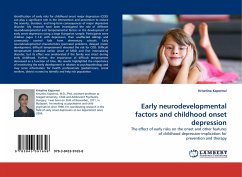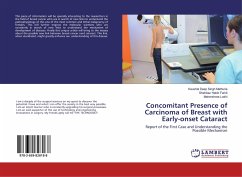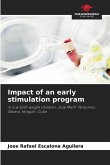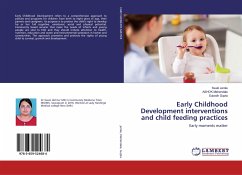Identification of early risks for childhood onset major depression (COD) can play a significant role in the intervention and prevention to reduce the severity, duration, and long-term consequences of major depressive disorder. My research have been investigated the role of different neurodevelopmental and temperamental factors in the development of early onset depression using a large Hungarian sample. Participants were children (ages 7-14) with depression, their unaffected siblings and community control kids from elementary schools. Early neurodevelopmental characteristics (perinatal problems, delayed motor development, difficult temperament) elevated the risk for COD. Difficult temperament predicted earlier onset of MDD and first internalizing disorder, but its effect was ameliorated if the family was intact during early childhood. Further, the importance of difficult temperament decreased as a function of time. My results highlighted the importance of monitoring the early development in relation to psychopathology and may serve information for health professionals (pediatricians, social workers, district nurses) to identify and help risk population.
Bitte wählen Sie Ihr Anliegen aus.
Rechnungen
Retourenschein anfordern
Bestellstatus
Storno








